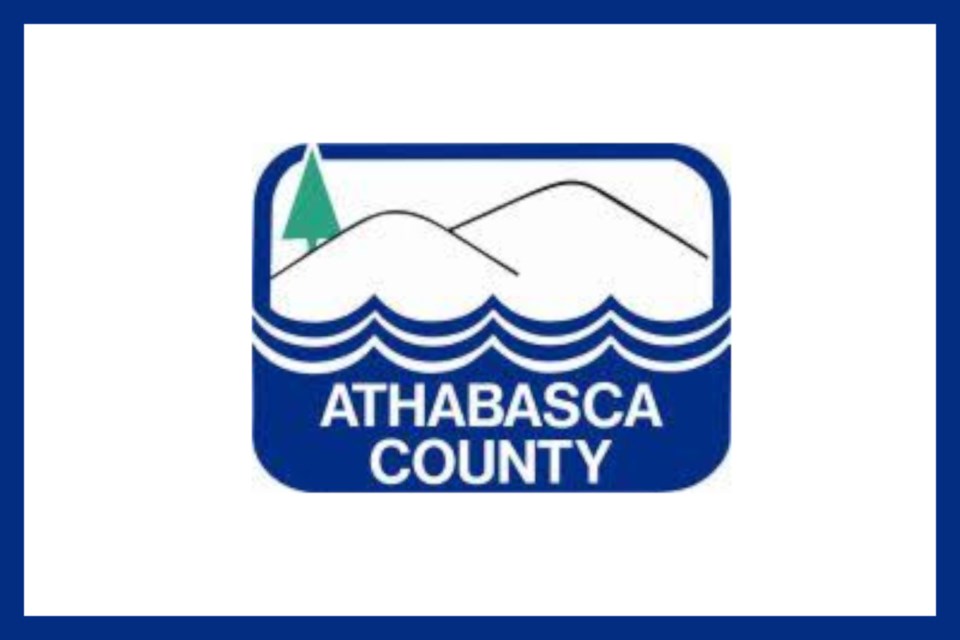ATHABASCA – For many, Christmas is a time to break out the eggnog and cuddle up in front of a fireplace. For municipalities, the holiday season means it’s time to break out the calculator and an Excel spreadsheet for the next year’s budget.
Athabasca County councillors voted 8-1 — Coun. Tracy Holland was opposed, expressing concerns about how rushed she felt the process was — in favour of a motion to approve their 2024 operating and capital budgets, as well as the 2025-2028 operating and capital plans during their Dec. 12 meeting.
“The process was good, council had a number of discussions around priorities, and we tried to focus on some key initiatives,” said Reeve Brian Hall. “We focused on the long-term health of the municipalities finances.”
The budget, which will see the county put $951,558 into reserves at the end of the year if everything goes according to plan, was finalized during two budget and finance meetings, held Dec. 7 and Dec. 11, before being officially voted on by county council.
“This is an amazing document that shows a lot of teamwork between council and a lot of teamwork with administration, who all learned together really quickly,” said Coun. Natasha Kapitaniuk, chairwoman of the budget and finance committee. “This is the most important job we do as a full organization each year. I’m proud to have been a part of it.”
Athabasca County is expecting to amend the budget in the new year — they won’t receive their 2023 assessment data until at least February — and the mill rate for 2024 hasn’t been set either, but the Municipal Government Act requires they have a plan in place for the start of January.
“When you’re as close as this document is to where we want to end up, there’s no value in doing an interim budget; it’s just an arbitrary number that doesn’t reflect the priorities for the upcoming year,” said Hall.
“While this needs some refining potentially in some areas, it provides clarity for the general direction for administration, so they know what they’ve got to work with and where they need to go,” continued the reeve.
According to the operating budget, Athabasca County will receive just over $30 million from revenues in 2024, and will spend approximately $34.5 million although that does include nearly $6 million in depreciation, so there will be cash left over.
The capital budget includes just over $10 million in projects, including $1,900,000 for the ALPAC bridge, and $2,353,000 for the grader replacement program. Councillors voted 7-2 —Holland and Coun. Gary Cromwell were opposed — to pause road construction for the year. Instead, the county will take the funds budgeted for this year and put them into a reserve to start preparing for gravel pit reclamation. A further $1 million will be taken from general reserves and placed into a restricted reserve for future road construction.
“It’s about coming up with a clearer plan on how and what we rebuild that aligns with long-term planning — how are those decisions made, and making sure we’re making the best, responsible choices on what we choose to rebuild,” said Hall. “The place the funds went has been underfunded for years, and you could argue that this is us trying to catch up on some lost ground.”
The original capital budget draft, which councillors discussed Dec. 7, included $15,447,370 in projects — besides the four proposed road rebuilds, councillors also made changes to how they will be managing their fleet, the equipment they’re planning to buy for public works and the fire department, and bridge files. Hall said the decrease was due to two major reasons.
“One of them is movement of some expenses from the capital budget to the operations budget, alongside some grant funding changes,” said Hall. “The other bit, because we know the timing of the construction season for (the Colinton bridge), we won’t be able to do the work in 2024, we moved that into the 2025 capital plan.”
Hall identified three things he thought were worth highlighting, including gravel pit reclamation.
“The contributions to reserves that are targeted towards clearing up future liabilities, that’s a big deal. The gravel pit reserve and the commitment to continuing to fund that, that’s a big deal,” he said.
“Keeping tax changes to a relatively low and modest amount is also important, and I think our continued investment in the fire services reserve, we’re now able to see the benefit of that. We’ve got a 10-year plan, and while it’s somewhat fluid we’ve got a projection of what apparatus will need to be replaced and with what timing,” said Hall.
Athabasca County had some administrative turnover in 2023, with CAO Bob Beck and director of infrastructure Jocelyn Whaley coming aboard late in the year. Despite the changes, Hall said the people behind the scenes had done a good job of pulling everything together before the end of the year.
“The administration did a fantastic job,” said Hall. “Council is working to be more predictable and to get things done earlier, and it’s an ongoing process. We’re making incremental improvements and I’m proud of this group I’m working with. We’re having these discussions earlier, and it allows us to make better decisions, and talk about how we align budget discussions with strategic goals.”



